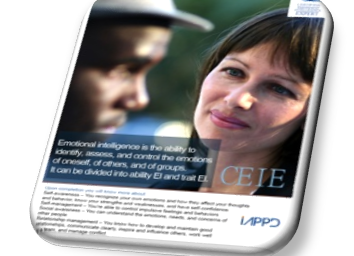Certified Emotional Intelligence ExpertWhatever the mind can conceive and believe, the mind can achieve. Dr. Napoleon Hill
Welcome to the Emotional Intelligence workshop. Emotional Intelligence is defined as a set of competencies demonstrating the ability one has to recognize his or her behaviors, moods, and impulses, and to manage them best according to the situation.
you’ll want to be prepared for the training that you do. This workshop will give all types of training tools to help create and deliver engaging, compelling workshops that will encourage trainees to come back for more.
Communicate with Power
- Stick to the point. Powerful communication is not about saying as many things as you can in a given period of time. Rather, it is about sticking to what is relevant to the discussion, and getting your message across in the shortest — but most impact-laden — way possible.
- Don’t be too casual. The use of paraphrasing, slang, street talk and bad grammar can detract from your credibility, especially if you’re mingling with potential clients, employers and business partners.
- Emphasize key ideas. Stress the highlights of your communication.
- Tailor-fit your communication to your audience.
- Connect. Power in communication is sometimes determined by the quality of your rapport with others.
Body Language
The following are some tips and techniques you can follow to be able to use body language effectively.
- Increase your awareness of your body language.
Try to get more information about what you communicate non-verbally, so that you will know what to change and what to retain. - Know how certain behaviours are typically interpreted.
Interpreting body language can be very subjective. There are, however, typical interpretations to specific body language. - Practice! Practice! Practice!
Body language is a skill. Initially, using body language that is congruent with the message that we want to communicate will feel unnatural.
The following are some of the components of body language: Eye Contact, Facial Expression, Posture, Specific Movements, Physical Contact
It’s Not What You Say, It’s How You Say It
The following are aspects of “how we say things” that we should take note of:
- Tone of Voice: Voice intonation refers to the use of changing pitch in order to convey a message.
- Stress and Emphasis: Changing which words or syllables you put emphasis on can change its meaning. For example, consider the differences among these three statements below.
- Pace and Rhythm: The speed of speech, as well as the appropriate use of pauses can change the meaning of words spoken, and affect the clarity and effectiveness of a communication.


